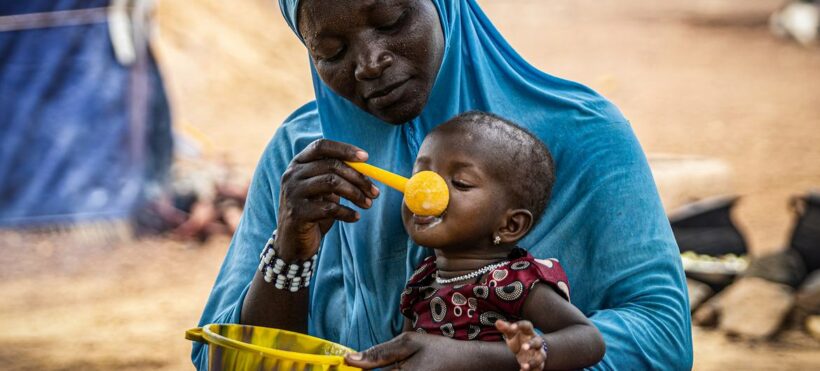Hunger continues to grow. According to the United Nations World Food Programme (WFP), nearly 55 million people are food insecure and 16.7 million children under the age of five are acutely malnourished in West and Central Africa. The region shows an increase of four million people currently facing food insecurity.
The situation is exacerbated as more than two-thirds of households have difficulty affording a healthy diet and eight out of 10 children, aged six to 23 months, lack consumption of essential foods for optimal growth and development, at a time of the region’s traditional three months of food shortages each year, from June to August.
Economic crises in this part of the world, such as stagnant production, currency devaluation, and increased inflation, have aggravated the food crisis in countries such as Nigeria, Ghana, Sierra Leone, and Mali (in the latter country, an estimated 2,600 people are said to be suffering from catastrophic hunger). This situation has led to an increase of more than 100% in the prices of basic grains, the main food staple for African families, over the last five years.
Ensuring good nutrition and care for every child
West and Central Africa currently depend on imports to meet the food needs of the population, but economic hardship has increased the cost of imports. UNICEF Regional Director Gilles Fagninou said, “For children in the region to reach their full potential, we need to ensure that every child is well nourished and cared for, lives in a healthy and safe environment and has adequate learning opportunities.
Mr. Fagninou explained that strengthening “education, health, water and sanitation, food and social protection systems” can make a lasting difference in children’s lives. Thus, FAO, the United Nations Children’s Fund (UNICEF), and the World Food Program (WFP) called on national governments, international organizations, civil society, and the private sector to put in place sustainable solutions to strengthen food security.
Source: UN News.










